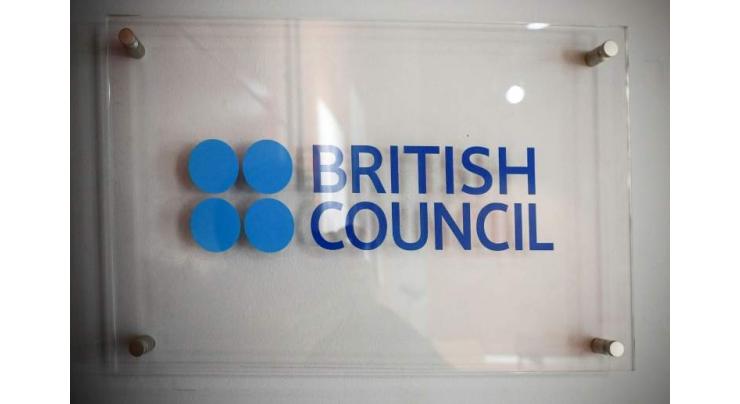
British Council: Instrument Of UK Soft Power
Umer Jamshaid Published March 17, 2018 | 10:43 PM

The British Council, whose activities in Russia were suspended by the Kremlin on Saturday, is a registered charity that uses education and culture to spread British soft power internationally.
London, (APP - UrduPoint / Pakistan Point News - 17th Mar, 2018 ) :The British Council, whose activities in Russia were suspended by the Kremlin on Saturday, is a registered charity that uses education and culture to spread British soft power internationally.
The group said Saturday it was "profoundly disappointed" by the decision, taken amid escalating tensions over the poisoning of former Russian spy Sergei Skripal and his daughter in England. The British Council is a network of cultural and linguistic institutes, with 179 branches in 107 countries, according to its 2017 annual report.
Over 65 million people directly used the service last year, with 731 million people also engaging with it online through broadcasts and publications. It was founded in 1934 as "extreme ideologies were gaining influence, with the rise of Communism in Russia, and Fascism in Germany, Italy and Spain," according to its website.
The council was granted a Royal Charter in 1940, which set out its mission as "promoting a wider knowledge of the UK and the English language abroad and developing closer cultural relations between the UK and other countries." It develops joint programmes in the fields of education, science and culture and had a budget of 1.1 billion ($1.53 billion, 1.24 billion Euros) for 2016/17.
The council receives most of its income from teaching and examination activities, offering face-to-face classes in 80 teaching centres in more than 50 countries.
This netted 650 million in 2016/17 and it also received a 158 million grant from the British government.
A 2014 report prepared by Britain's Foreign Affairs Committee called the council "a vital institution supporting UK influence globally" and "a key element of the UK's approach to international relations." The group led Britain's "UK-Russia Year of Language and Literature" in 2016, championing the "deeply held respect for each other's culture and literature." The programme included a massive open online course based on Shakespeare's works while cinemas in 40 Russian cities hosted live screenings of performances at Britain's Royal National Theatre and the Globe Theatre.
In return, portraits of some of Russia's greatest cultural figures, including Tolstoy, Tchaikovsky and Mussorgsky went on display at London's National Portrait Gallery. It has had previous run-ins with the Kremlin, and was ordered to close its offices outside Moscow in 2007 after being accused of violating tax regulations British officials claimed it was retaliation over the British expulsion of Russian diplomats allegedly involved with the fatal poisoning of Kremlin critic Alexander Litvinenko in London.
It boasts headquarters off Trafalgar Square in central London and its current CEO is Irish former cancer charity boss Ciaran Devane.
Related Topics
Recent Stories

Govt bringing reforms in energy, revenue collection, SOEs: Aurangzeb

Pakistan, New Zealand to face off in 2nd T20I match at Rawalpindi today

Currency Rate In Pakistan - Dollar, Euro, Pound, Riyal Rates On 20 April 2024

Today Gold Rate in Pakistan 20 April 2024

Tennis: ATP Barcelona Open results - 1st update

Swiatek's perfect 10 in Stuttgart as Vondrousova stuns Sabalenka

Arandu's roads closed due to flooding

Oil tanker catches fire in Islamabad’s Blue Area

Pakistan committed to ensure safety of foreign nationals: FO

Tennis: WTA Stuttgart results - 1st update

Four passengers injured as train hit an empty vehicle

Over- speeding bus crushed to death two bike riders
More Stories From World
-
Two Mexican mayoral candidates reported killed in single day
5 minutes ago -
SEU participates in international exhibition of inventions of Geneva
35 minutes ago -
China tests new freight train with heaviest load capacity
55 minutes ago -
Swiss ballet group stages classics in Beijing
55 minutes ago -
Turkish scientists study receive offers, including US, Canada, to maintain research, development stu ..
1 hour ago -
Chinese scientists develop new material for seawater desalination
1 hour ago
-
China issues orange alert for rainstorms
1 hour ago -
Polyester staple fiber factory operational in Xinjiang
1 hour ago -
New Godzilla x Kong film continues to lead Chinese box office
1 hour ago -
42 Neolithic sites found in NE China
1 hour ago -
Scottish independence supporters seek to inject life into faltering campaign
2 hours ago -
Georgia's youth dominates pro-Europe street protests
2 hours ago